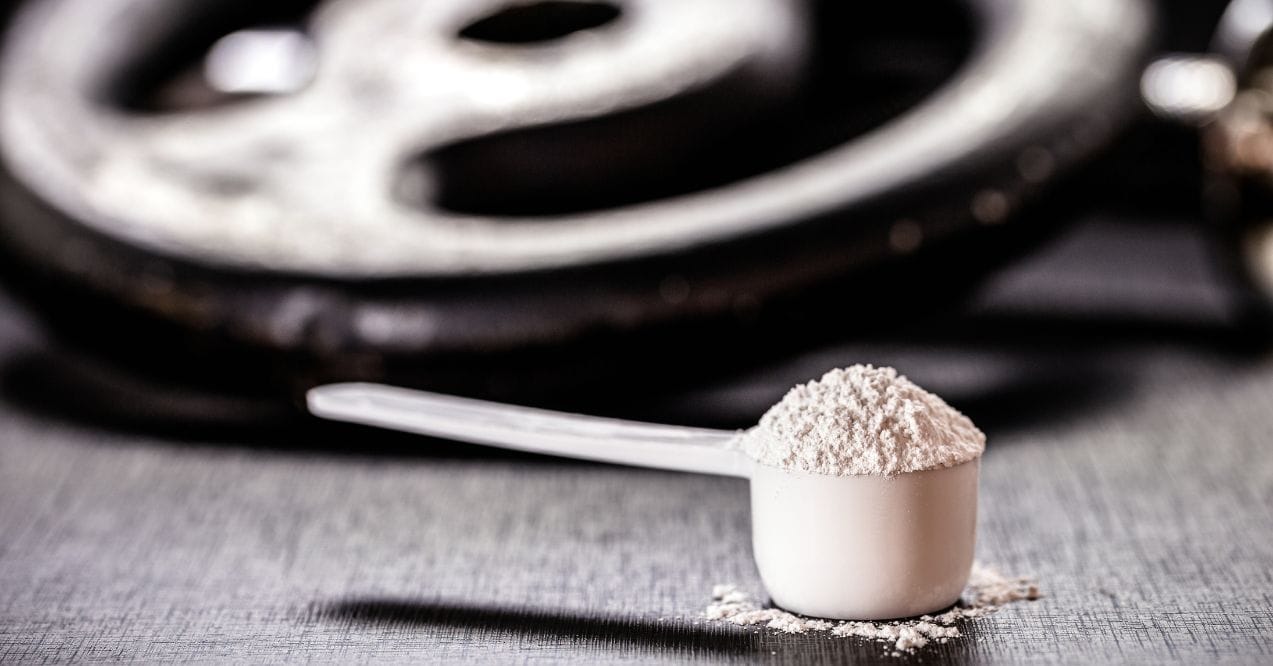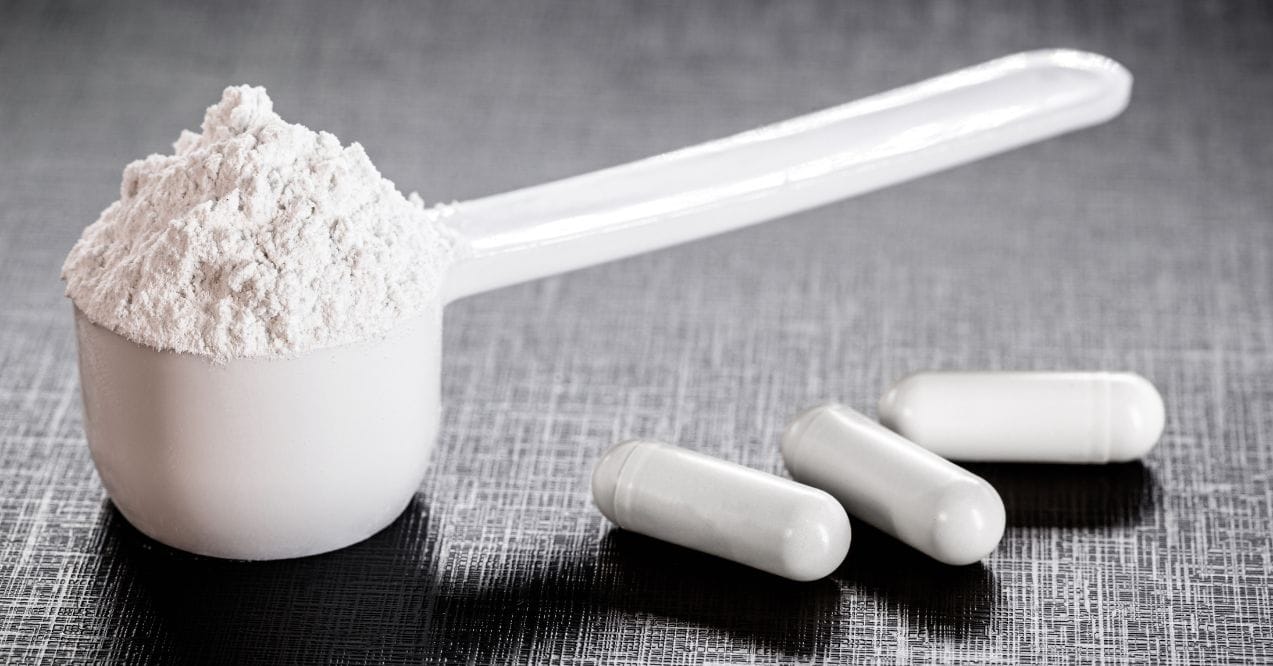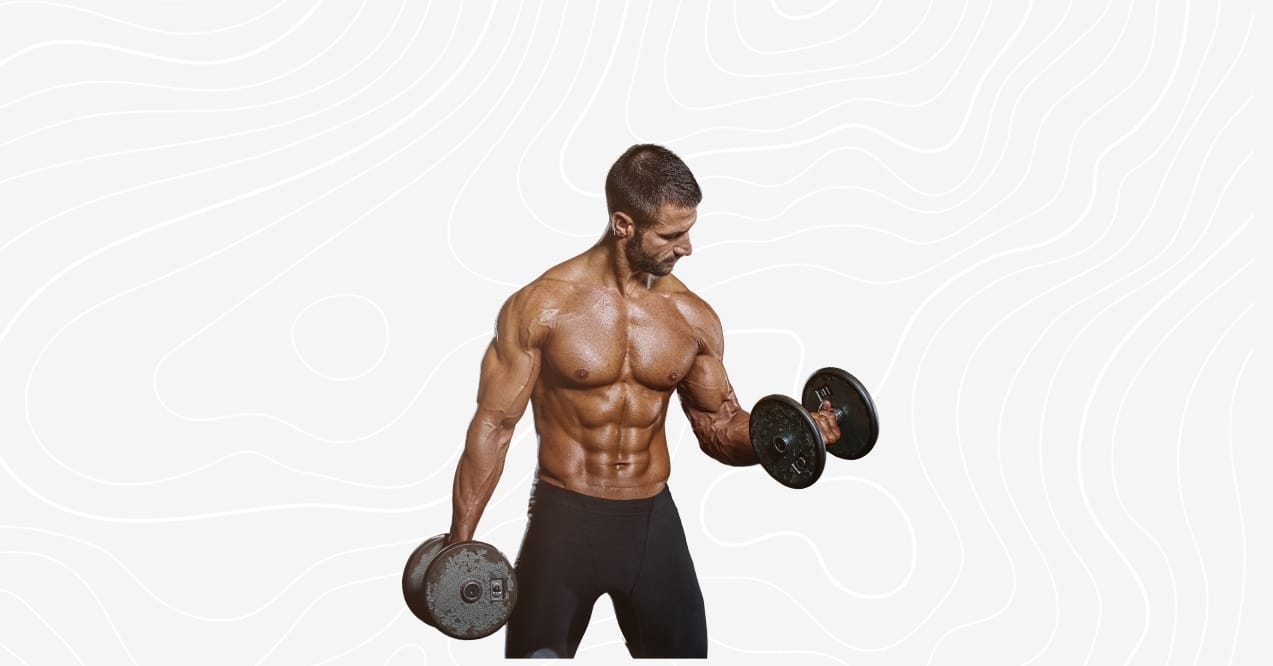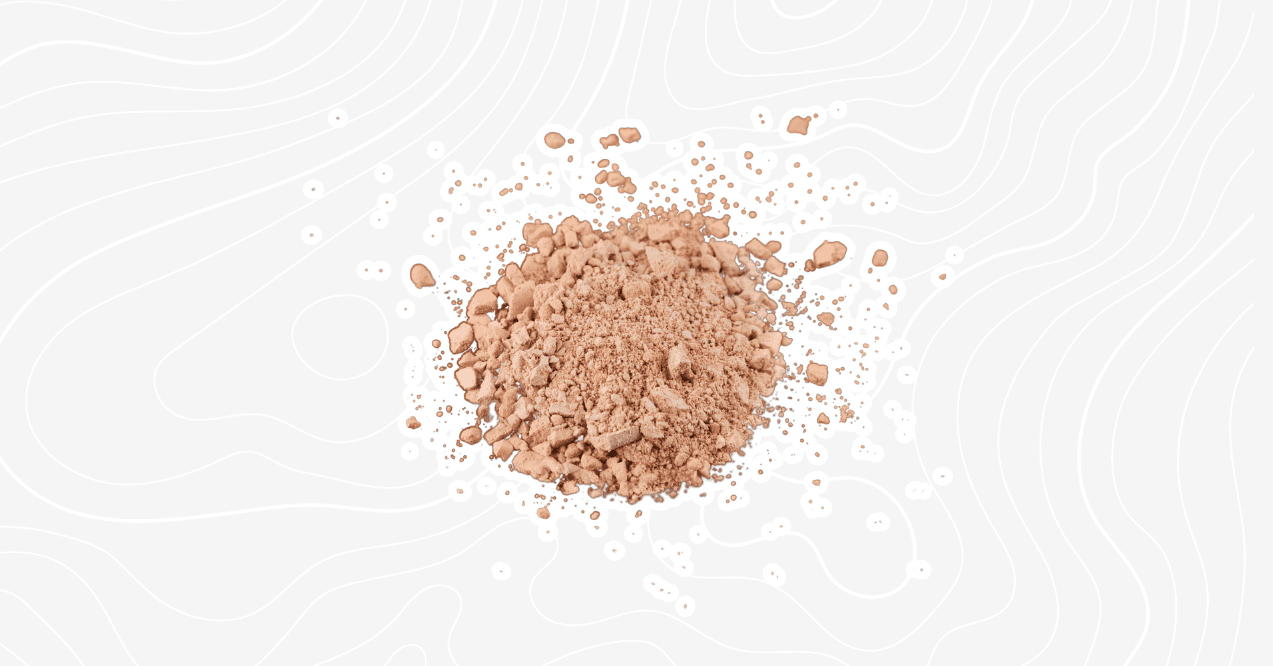Do Probiotics Help With Bloating? (Ultimate Guide)
Have you ever finished a meal only to feel like a balloon ready to burst? If so, you’re not alone. This discomfort, known as bloating, is an experience shared by many.
Bloating can hit you when you least expect it – after a celebratory feast, a quick lunch, or even a healthy salad. You may even think can ovulation cause bloating? Your belly swells, and a feeling of discomfort creeps in, casting a cloud over what should have been a pleasant experience. The clothes feel tighter, the belt needs loosening, and all you want to do is lie down and hope it passes soon.
But what if there were a solution that could help keep these unwelcome post-meal moments at bay? Well, the good news is, there might be one. You’ve probably heard about probiotics – those friendly little bacteria that are often praised for their benefits on gut health. But the question we’re considering here is, do probiotics help with bloating?
The use of probiotics has its roots anchored in history, with many cultures incorporating fermented foods teeming with these beneficial microbes in their diets. In recent times, their potential role in digestive health has caught the attention of scientists, much like performance supplements and superfood powders are gaining recognition for their role in optimizing wellness. And the findings, to the relief of many, are quite promising.
This article is a deep dive into the world of probiotics and their potential role in alleviating bloating. Let’s decode the science, sift through the research, and find out if probiotics could be the missing piece in your battle against bloating.
Key Article Findings:
Common Causes of Bloating
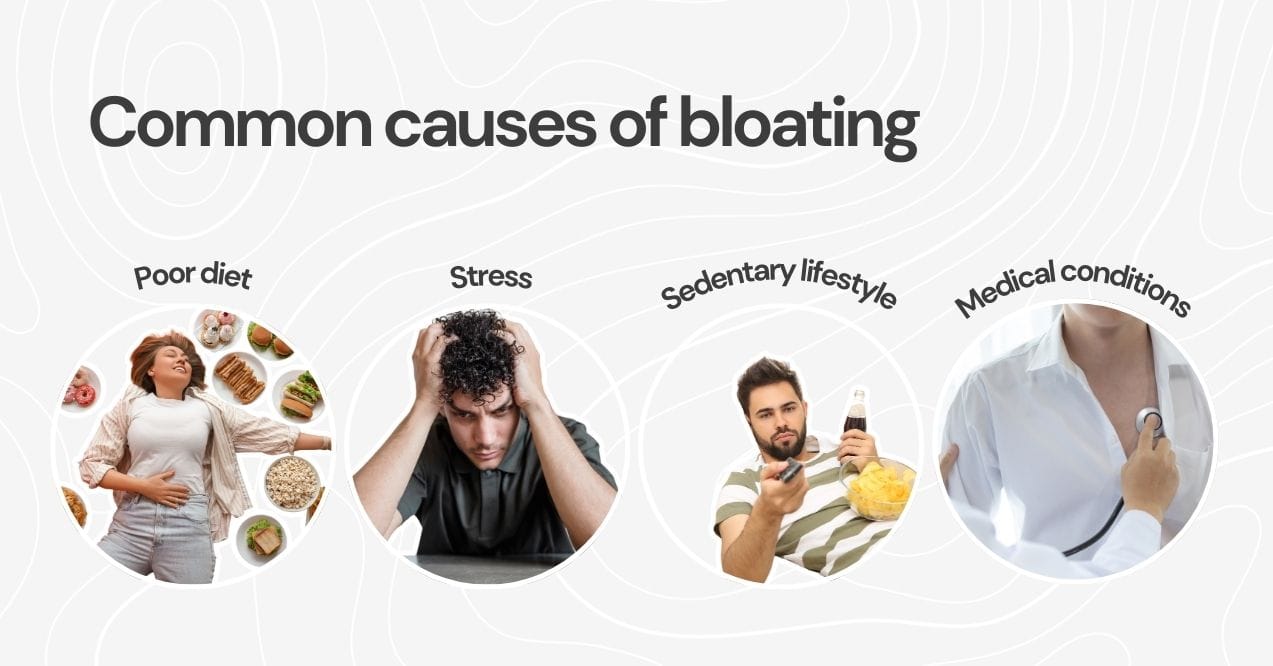
The sudden, unwelcome feeling of bloating is often the result of various factors that range from dietary choices to lifestyle habits and underlying medical conditions.
Poor Diet
One of the prime perpetrators of bloating is a poor diet, particularly one abundant in fats and sugars. These foods are harder for our body to break down and digest, slowing down the movement of food through the gut. This delay gives our gut bacteria ample time to feast on these undigested bits, leading to an excessive production of gas and subsequently, that bloated, inflated feeling.
Stress
Did you know that your mental wellbeing can affect your gut health? Chronic stress disrupts the smooth functioning of your digestive system, slowing it down and contributing to issues like bloating. Our gut is often called our second brain and it’s no surprise that when one is stressed, the other feels the impact.
Sedentary Lifestyle
Living a sedentary lifestyle also plays a part in triggering bloating. Lack of physical activity slows down our metabolism, which in turn can lead to constipation and bloating. Regular movement aids digestion and promotes regular bowel movements, helping to keep bloating at bay.
Medical Conditions
Last but certainly not least, certain medical conditions can be at the root of bloating. These include Irritable Bowel Syndrome (IBS), Inflammatory Bowel Disease (IBD), and hormonal conditions like Polycystic Ovary Syndrome (PCOS). It’s crucial to consult with a healthcare professional if you suspect an underlying medical condition is causing your bloating.
In understanding these causes, we pave the way to finding effective solutions. This leads us to the question at hand – do probiotics help with bloating caused by these various factors? Let’s delve deeper to unravel the science behind this intriguing query.

Holistic Solutions to Bloating
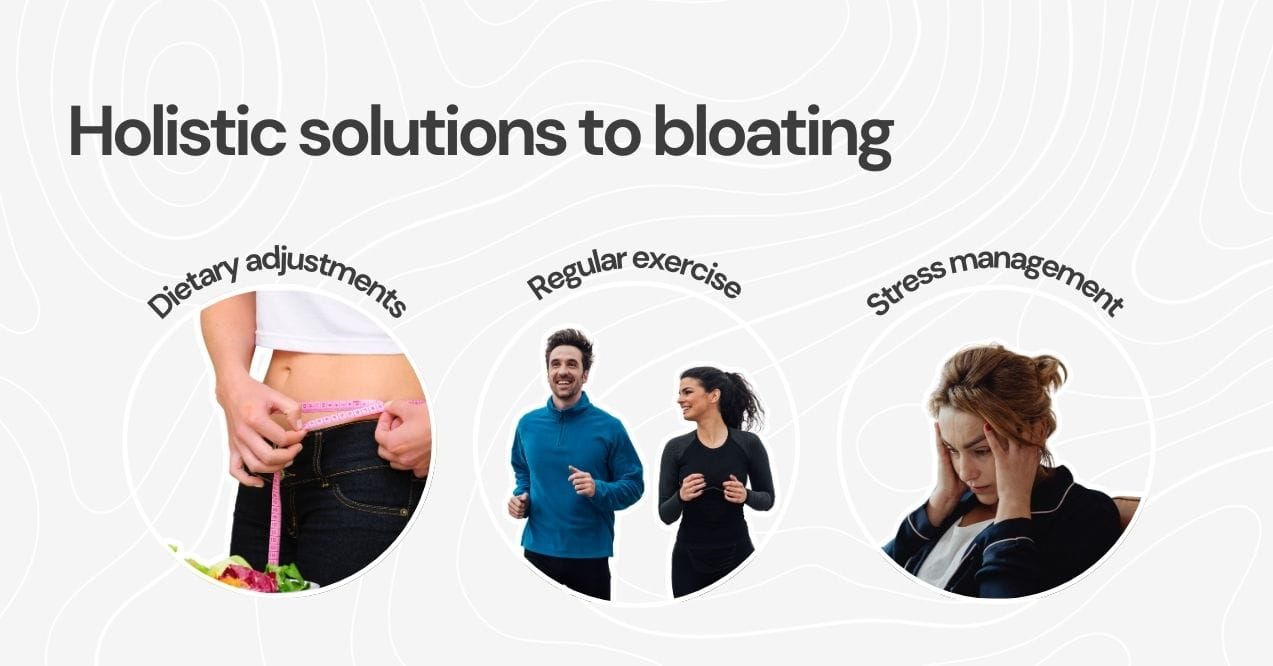
Addressing bloating doesn’t have to mean drastic changes. In fact, small, holistic strategies can lead to significant improvements:
Dietary Adjustments – diet plays a crucial role in managing bloating. Reducing high-fat foods, increasing dietary fiber, and identifying personal trigger foods can all contribute to better gut health and less bloating.
Regular Exercise – exercise isn’t just for weight loss. Regular physical activity stimulates natural gut contractions, aiding digestion, and can reduce bloating.
Stress Management – don’t underestimate the power of stress on your digestive system. Techniques like yoga and meditation can help manage stress levels, improve digestion, and reduce bloating.
While these holistic strategies play an integral part in managing bloating, another potential companion in this journey is probiotics. This leads us to the intriguing question: how do probiotics help with bloating? Let’s venture further into this discussion.
Do Probiotics Help With Bloating?
Let’s unravel the mystery of probiotics. What exactly are these microscopic allies and how do probiotics help with bloating? Probiotics, in the simplest terms, are live beneficial bacteria that contribute to gut health. They’re our silent partners, tirelessly working behind the scenes to ensure our gut health remains in check.
Tracing back to traditional times, our ancestors unknowingly consumed probiotics through fermented foods like yogurt, sauerkraut, and kimchi. These foods, teeming with beneficial bacteria, have always played a part in human diets across various cultures. Fast forward to modern times, and probiotics have taken center stage in the health and wellness arena, now available in convenient forms like supplements and enriched foods.
Key players in the probiotics world are the bacterial strains from the Lactobacillus and Bifidobacterium families. Known for their health-promoting properties, these are the stars in many probiotic supplements. They maintain a healthy gut by outcompeting harmful bacteria and aiding in the digestion of food, which may have implications for bloating.
So, while probiotics are champions for gut health, we are left with the question – do prebiotics and probiotics help with bloating? To answer this, let’s delve deeper into the specific probiotic strains and their link with bloating relief.
Probiotics and Bloating – Beneficial Strains
Probiotics, with their beneficial properties, have piqued the interest of scientists in the context of bloating. Their intricate functionality and the specific probiotic strains have demonstrated potential in reducing bloating.
There are several strains that seem to have a beneficial impact on bloating, but three, in particular, stand out – Bifidobacterium lactis, Lactobacillus acidophilus, and Lactobacillus plantarum.
Bifidobacterium Lactis

Bifidobacterium lactis stands as a champion in the probiotic league. This strain supports digestion by breaking down waste products, assists in absorbing vital nutrients, and maintains regular bowel movements, all of which help prevent constipation – a frequent trigger for bloating.
Dairy Products: Cheese and Yogurt – A noteworthy source of Bifidobacterium lactis is dairy. Fermented dairy products such as cheese and yogurt are often rich in this particular strain. Consuming a serving of these foods regularly can help ensure a steady intake of this probiotic.
Sourdough Bread – Surprisingly, certain types of sourdough bread also harbor this beneficial bacterium. So, the next time you’re at your local bakery, consider picking up a loaf of sourdough to give your gut health a boost.
Probiotic Supplements – For those who have dietary restrictions or are just looking for a more concentrated source, Bifidobacterium lactis is frequently found in high-quality probiotic supplements.
Including Bifidobacterium lactis in your diet, be it through natural food sources of dietary supplements, could be an effective strategy in your fight against bloating, offering a beneficial method to enhance gut health and overall well-being.
Lactobacillus Acidophilus
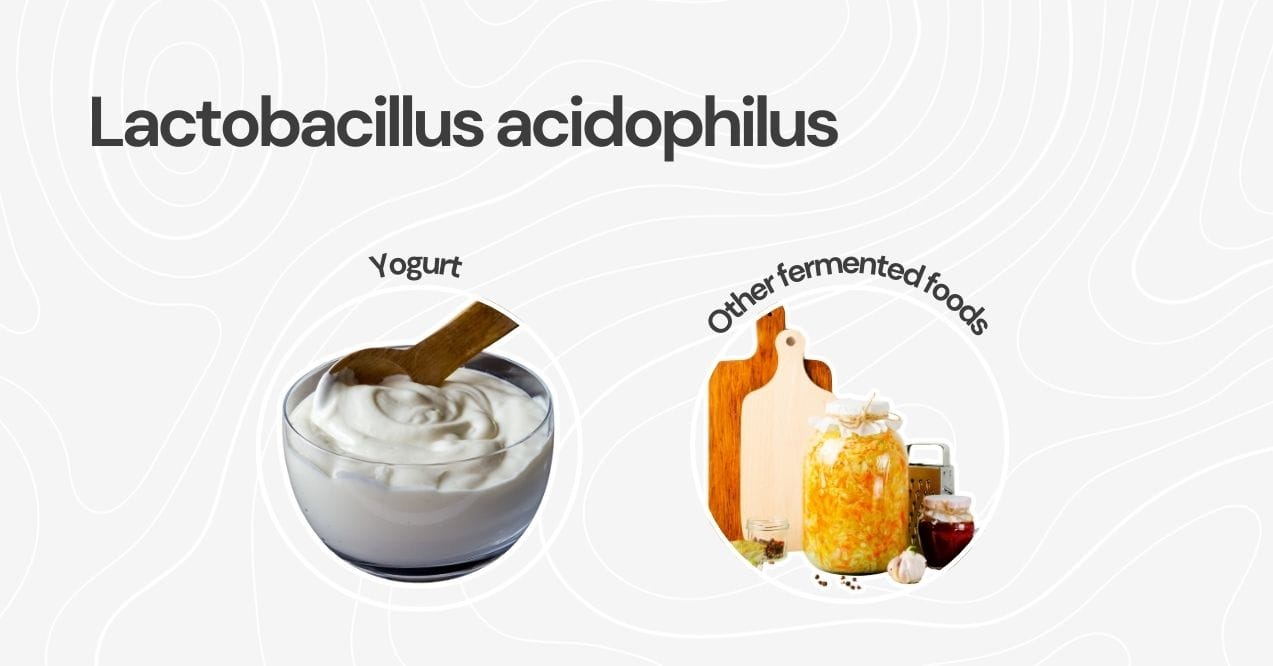
Lactobacillus acidophilus is another noteworthy strain in the probiotic domain. This strain not only aids in reducing the production of gases in your gut, thereby reducing bloating but also fosters a healthy gut microbiota balance, crucial for better digestion and nutrient absorption.
Yogurt – One of the most common sources of Lactobacillus acidophilus is yogurt. Choose a yogurt that specifically mentions live or active cultures on the label to ensure you’re getting a good dose of probiotics.
Other Fermented Foods – Beyond yogurt, Lactobacillus acidophilus can also be found in a variety of other fermented foods. These include kefir, a type of fermented milk drink, and miso, a Japanese seasoning made from fermented soybeans.
Lactobacillus Plantarum
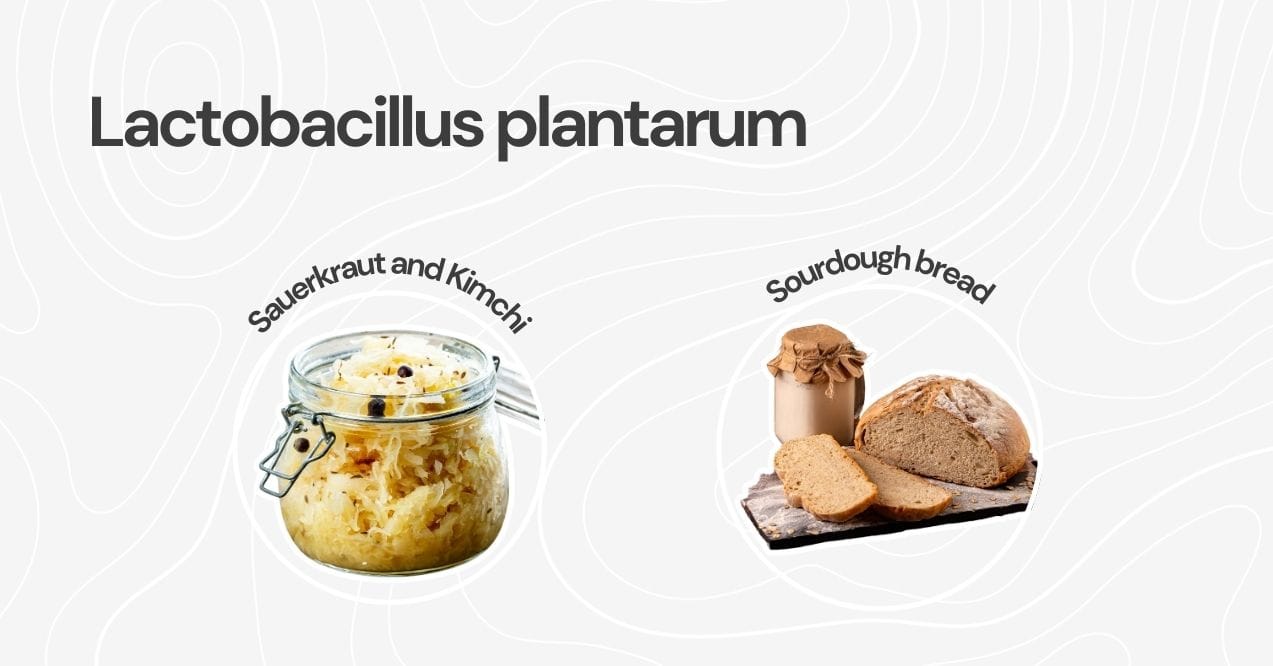
Our exploration of probiotic strains brings us to Lactobacillus plantarum. This strain is known to alleviate bloating by improving gut barrier function and reducing inflammation – often key factors in bloating and overall gut discomfort.
Sauerkraut and Kimchi – A prime source of Lactobacillus plantarum is fermented vegetables, with sauerkraut and kimchi leading the pack. These tangy foods, known for their probiotic content, are not only delicious but also offer a robust supply of Lactobacillus plantarum.
Sourdough Bread – Like its probiotic cousin Bifidobacterium lactis, Lactobacillus plantarum is also present in certain types of sourdough bread, making your morning toast a potential ally in supporting gut health.
All three strains work in synergy, maintaining a healthy balance of gut microbiota, aiding in digestion, promoting regular bowel movements, and minimizing inflammation – all factors that, when managed well, could potentially reduce bloating.
So, in considering these strains, the question isn’t merely, do probiotics help with bloating? Rather, it’s about identifying the specific strains that do and understanding how they contribute to a healthier, less bloated you.
Choosing the Right Probiotic Supplement Powder
Navigating the world of probiotics can seem overwhelming. With numerous products available, making the right choice requires careful consideration. Here’s what to look for when choosing a probiotic supplement powder.
Probiotic Strains
The first step is to check the probiotic strains in the supplement. As we discussed earlier, certain strains like Bifidobacterium lactis, Lactobacillus acidophilus, and Lactobacillus plantarum have been found to be particularly effective in reducing bloating. Hence, it’s advisable to look for a supplement that includes one or more of these strains.
CFU Count
Next, consider the CFU count, which stands for ‘colony-forming units’. This is a measure of the number of live bacteria in a supplement. A high CFU count doesn’t always mean a better product, but it does indicate the quantity of probiotics you’ll receive per serving. Most experts recommend products with a CFU count in the billions.
Independent Testing
Lastly, ensure the probiotic supplement has undergone independent testing. This step guarantees product safety and verifies the presence and potency of the probiotics as claimed on the label. Products that have been tested by an independent lab typically have a label indicating as such, providing an extra layer of assurance.
In a market teeming with options, these key criteria can help you make an informed decision and find a probiotic supplement that aligns with your health goals. Remember, probiotics can play a crucial role in your strategy to combat bloating, making the choice of the right supplement an important one.
Trumeta Metabolic Greens: A Powerhouse for Gut Health

Are you looking for a potent probiotic supplement that combines the power of superfoods and digestive enzymes? Trumeta Greens is an organic superfood powder that combines a variety of nutrient-dense superfoods, including spirulina, chlorella, kale, and wheatgrass. This all-natural blend is an impressive option for anyone seeking to enhance gut health and combat bloating.
This supplement is one of the best supplements for gut health, as it contains a range of ingredients that can support digestive health and improve overall well being. Here are some of the key benefits of Trumeta Greens ingredients:
Spirulina – In addition to its vast nutrient profile, spirulina’s high protein content and essential amino acids can aid in supporting healthy gut bacteria, which play a crucial role in digestion and absorption. Furthermore, spirulina’s high fiber content can help facilitate regular bowel movements, making it an effective ingredient for combating bloating and maintaining gut health.
Chlorella – Chlorella shines in supporting digestive health and reducing bloating. Its high fiber content aids in regular bowel movements, keeping your digestive tract running smoothly and reducing the likelihood of bloating. More impressively, chlorella boasts a unique property known as ‘Chlorella Growth Factor’ (CGF), which helps stimulate the growth of beneficial gut bacteria. These bacteria can significantly enhance digestion, reduce gas, and fight off bloating.
Wheatgrass – Wheatgrass is a potent aid in reducing bloating and promoting a healthy digestive system. It contains a high amount of fiber which aids in regular bowel movements, reducing the likelihood of bloating and discomfort. Additionally, wheatgrass has alkalizing properties that can help balance the pH level in your digestive tract, contributing to a healthier gut environment and potentially alleviating bloating symptoms. Its enzyme-rich composition also assists in the breakdown of food, further enhancing digestion and nutrient absorption.
Convenient Powder Form – The convenience of this product cannot be overstated. Metabolic Greens comes in a handy powder form that can easily be mixed into water, smoothies, or meals. It allows for seamless integration into your daily routine.
The companion product, Metabolic Reds, also packs a powerful punch with its blend of red superfoods. It is a great complement to Metabolic Greens and provides an expanded spectrum of nutritional benefits.
Trumeta offers you a convenient, nutrient-dense solution to support your gut health. By incorporating Metabolic Greens or Metabolic Reds into your daily routine, you can enhance your diet with valuable superfoods, and supportive nutrients – a recipe for improved digestion, reduced bloating, and a healthier you.
Other Bloating Prevention Strategies
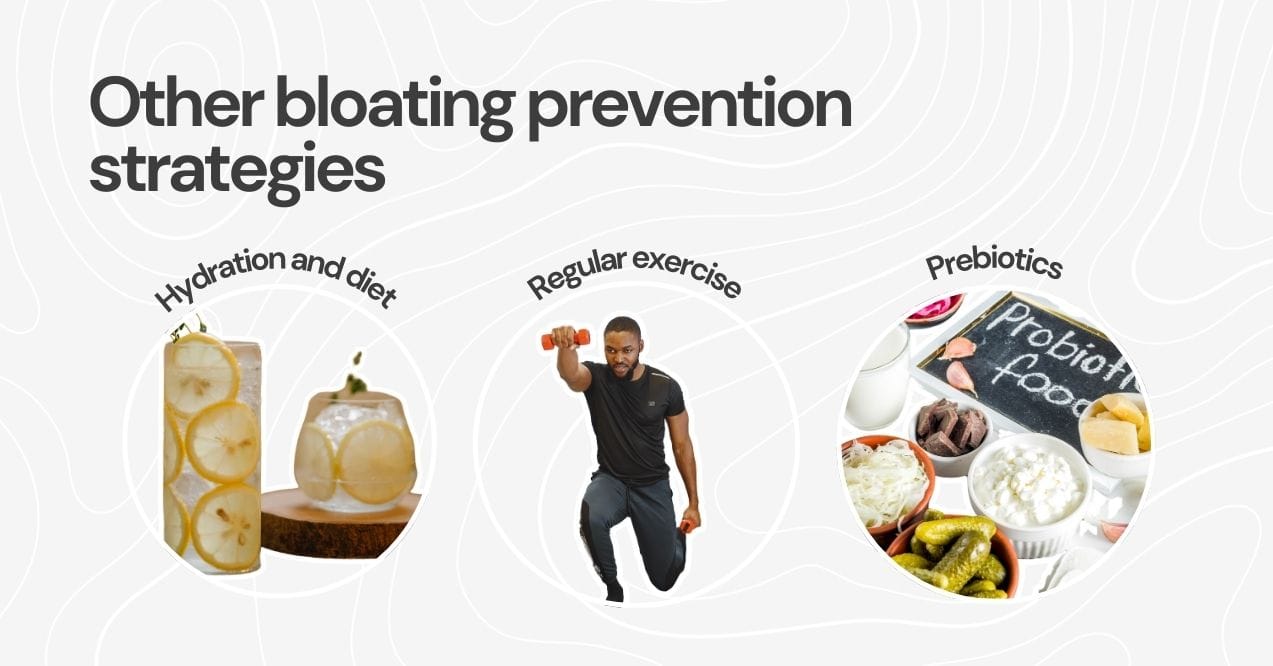
In addition to the potential benefits of probiotics or organic superfood powders, there are several other effective strategies to prevent bloating.
Hydration and Diet – Proper hydration aids digestion and reduces bloating, so aim for at least 8 cups of water daily. Additionally, certain foods, like beans, lentils, and some vegetables, may cause gas and bloating. Reducing intake or changing the preparation method of these foods can lessen bloating discomfort.
Regular Exercise – Physical activity stimulates gut muscles, promoting regular bowel movements and reducing bloating chances. Exercise routines can vary from brisk walks to high-intensity workouts, depending on your preference.
Prebiotics: Aiding Probiotics – Lastly, prebiotics — non-digestible fibers — act as food for probiotics, enhancing their effectiveness. Consuming foods rich in prebiotics or using prebiotic supplements can help create a balanced gut environment.
Incorporating all these strategies along with the use of probiotics like Trumeta Metabolic Greens provides a holistic approach to managing bloating. It’s always crucial to remember that a combination of methods, rather than one alone, often yields the best results in maintaining overall digestive health.
Key Takeaways
In conclusion, bloating is a common issue with several potential remedies. From diet and lifestyle modifications to the right supplement, like Trumeta Metabolic Greens, there are several strategies to manage bloating. Natural probiotics play a crucial role in maintaining gut health and potentially reducing bloating, making them a worthy addition to your wellness routine.
So, the answer to the question, “do probiotics help with bloating and gas?” is indeed a resounding yes. But remember, maintaining a healthy lifestyle overall is paramount to supporting gut health and overall wellness.
Yes, certain probiotic strains like Bifidobacterium lactis, Lactobacillus acidophilus, and Lactobacillus plantarum can help reduce bloating. These beneficial bacteria support digestion, promote regular bowel movements, and balance gut health, which may alleviate bloating.
Bloating can be triggered by various factors, including a poor diet, stress, a sedentary lifestyle, or underlying medical conditions like IBS. Identifying personal triggers and adopting a healthy lifestyle can help manage and reduce bloating.
Trumeta Metabolic Greens contains nutrient-rich superfoods like spirulina, chlorella, and wheatgrass, which support digestive health, reduce bloating, and promote regular bowel movements. Its high fiber content and gut-friendly nutrients make it an effective supplement for overall gut health.
Advertisement. This site offers health, wellness, fitness and nutritional information and is designed for educational purposes only. You should not rely on this information as a substitute for, nor does it replace, professional medical advice, diagnosis, or treatment. If you have any concerns or questions about your health, you should always consult with a physician or other health-care professional. Do not disregard, avoid or delay obtaining medical or health related advice from your health-care professional because of something you may have read on this site. The use of any information provided on this site is solely at your own risk.
